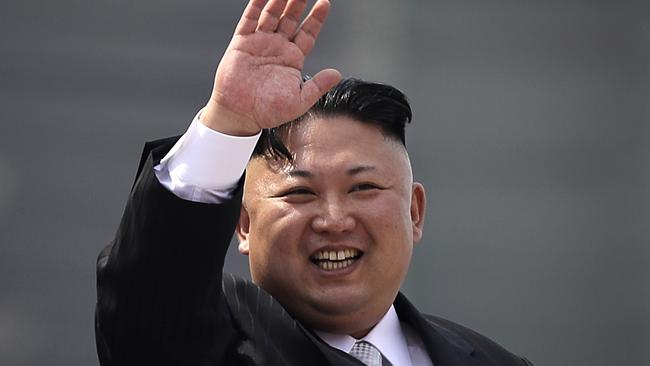The market view on North Korean crisis
In simple terms, the market believes there won’t be a war with North Korea because the consequences are so bad.

If and when global share markets believe that an all out war between the US and North Korea is a likely event, there is likely be a significant fall in share values. But in the first days after Easter the sabre rattling between both sides increased US bond prices significantly but did not cause a big share market reversal. Indeed the looming British election has been a bigger factor in the UK market than the Korean crisis on the US and Asian markets.
In simple terms the market believes that there will not be a war because the consequences are so bad that the event will not take place. Like everyone else I hope the market is right but it’s an enormous punt.
Last month I called the possibility of a Korean war the so-called X factor for 2017 — a force that suddenly and surprisingly emerges as the dominant driver of share and bond prices. The election of Donald Trump as US President was the 2016 X factor.
If war breaks out suddenly then a series of events are a real prospect — a conventional or nuclear attack on South Korea and Japan; a massive flow of Korean refugees into China which will destabilise the Chinese economy plus the movement of the US onto war footing. The US tax cuts that have boosted the market would almost certainly go on the back burner The US, Australian and most share markets are priced on the basis that nothing serious will go wrong in world economies — a Korean war is not priced into the market.
The North Korean economy is unlike any other. About 80 per cent of its foreign revenue comes from sales to China of which the biggest export is coal. Korea used coal revenue — including keeping large amounts of money in China — to dodge the global sanctions. Korea has also developed a cyber industry, which it uses to hack into world banks. It has been linked to attacks on banks in 18 countries. And North Korea has also been linked to the drug and illicit weapon trades. Most North Koreans live in poverty but substantial numbers are sent abroad to work in China, Russia and the Middle East.
But the aspect of North Korea that is most disturbing is that its leader Kim Jong-un, and indeed the regime, are extremely confident that they can deter the US and South Korea from carrying out military strikes. Kim Jong-un would believe that in the first few hours of a war his artillery could inflict great damage on South Korea with artillery let alone missiles. Japan would require a missile attack. Therefore almost certainly Kim Jong-un will believe that the consequences of a US/South Korea attack on North Korea would be too great for it to be attempted.
In a strange way that North Korean view coincides with the US and global share markets.
The trouble is that every week that goes by without an attack on North Korea increases the likelihood that North Korea will be able to launch a rocket attack on the US.
The market probably reasons that it will gain advance warning of an attack on North Korea so there will be time to get out. Advance warning would come if there is a major build up of Chinese troops on the North Korean border and/or the US starts withdrawing personnel from South Korea and Japan
A build up of US forces in South Korea would be a similar signal.
Again let’s hope those signals do not appear but its worth recalling in words of former Australian Prime Minister Kevin Rudd.
Last December, when asked by ABC 7.30 host Leigh Sales to name the most pressing challenges in our region, Rudd nominated three: “North Korea, North Korea and North Korea.”
“We’re on a technical trajectory. It’s to do with North Korean technical capabilities in terms of missile sophistication, missile range, the availability of nuclear material and the ability to militaries that into a warhead.”
That’s diplomatic language for saying that within a year North Korea maybe able to fire nuclear weapons at both South Korea and Japan.
Rudd may not have been a brilliant Prime Minister (he is not alone in that classification) but he is one of the world’s best minds when it comes to events in Asia.




To join the conversation, please log in. Don't have an account? Register
Join the conversation, you are commenting as Logout